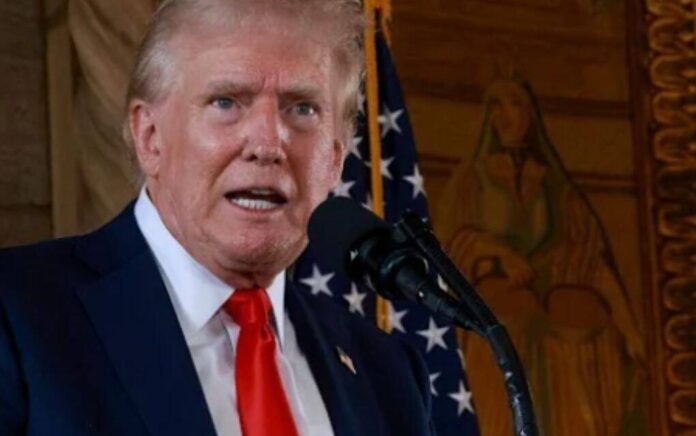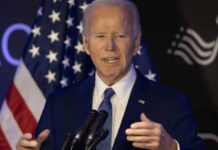
Donald Trump’s enemies don’t want him anywhere near the White House. That’s why they’re finding new ways to destroy the campaign.
And top secret info from the Trump campaign was leaked after this hacking attempt.
An investigative journalist has stirred controversy by publishing what he claims is the vetting dossier on Senator J.D. Vance (R-OH), reportedly compiled by former President Donald Trump’s 2024 campaign. The dossier, which was hacked by Iranian sources and subsequently leaked, has raised questions about journalistic integrity, free speech, and social media moderation.
The dossier outlines a list of Vance’s perceived “vulnerabilities,” which were initially sent to major outlets like Politico, The New York Times, and The Washington Post. However, these outlets opted not to publish the document’s contents, focusing instead on the individuals suspected of orchestrating the hack.
The Trump campaign responded by asserting that the dossier had been “obtained illegally from foreign sources hostile to the United States.”
On Thursday, journalist Ken Klippenstein, formerly of The Intercept, released what he claimed was the dossier on his Substack account. He justified the publication by stating that it was “of keen public interest in an election season.”
The document highlights potential weaknesses in Vance’s profile, such as his opposition to U.S. support for Ukraine amid its war with Russia. Notably, Vance was chosen as Trump’s running mate during the first day of the Republican National Convention in July.
After Klippenstein shared a link to the dossier on X (formerly known as Twitter), his account was quickly suspended. He humorously acknowledged the situation, joking about his future in media. The platform later clarified that his suspension stemmed from violating rules regarding the publication of private personal information, specifically Vance’s physical addresses and parts of his Social Security number.
While the Trump campaign has not confirmed the document’s authenticity, it issued a statement linking the journalist’s actions to foreign interests. Steven Cheung, Trump’s communications director, commented, “The terror regime in Iran loves the weakness and stupidity of Kamala Harris and is terrified of the strength and resolve of President Donald J. Trump.” Cheung criticized media outlets for what he called advancing the agenda of hostile nations.
The ethical implications of publishing hacked materials remain a significant point of contention. Jeffrey McCall, a communication professor specializing in political media at DePauw University, emphasized the precarious position that Klippenstein may have placed himself in. “Although the documents might well be authentic, Klippenstein can’t be absolutely sure,” McCall wrote, adding that journalists must be cautious when publishing information obtained through illicit means, as it could serve the goals of malicious actors. McCall speculated that the lack of sensational content in the documents could explain why other outlets declined to publish them.
Furthermore, McCall raised concerns about the precedent Klippenstein set for himself by publishing these materials. He questioned whether Klippenstein would exhibit the same eagerness to publish unverified information if it concerned other political campaigns, such as the Harris-Walz ticket.
The debate over journalists publishing stolen materials has persisted in recent years. Notably, in the 2016 presidential race, Russian hackers leaked emails from Democratic officials, which were extensively covered by outlets such as The New York Times and The Wall Street Journal. Similarly, BuzzFeed published a controversial opposition dossier in 2017, and the New York Post’s 2020 exposé on Hunter Biden’s laptop was suppressed by social media platforms, leading to claims of censorship.
Klippenstein’s release of the Vance dossier triggered a social media backlash. Ali Breland, a writer for The Atlantic, reported being temporarily locked out of his X account after sharing a screenshot of the document. Breland expressed frustration over how swiftly the platform acted, noting that enforcement has been inconsistent on more clear-cut violations.
X’s moderation team later clarified that Klippenstein’s suspension was due to his inclusion of unredacted personal information. Despite this, Elon Musk, the platform’s owner and a self-proclaimed free speech advocate, faced immediate criticism for the decision. Some Leftist voices argued that the suspension contradicted Musk’s commitment to free expression.
Ken Klippenstein was temporarily suspended for violating our rules on posting unredacted private personal information, specifically Sen. Vance’s physical addresses and the majority of his Social Security number.
— Safety (@Safety) September 26, 2024
One user sarcastically remarked, “Elon Musk, ‘free speech absolutist’, just suspended progressive journalist Ken Klippenstein after he reported on the JD Vance Dossier,” while another wrote, “If anybody still believes the delusional notion that Elon is some sort of free speech champion and not a total partisan hack, he suspended Ken for leaking the JD Vance dossier. Shameful and cowardly behavior.”
But what’s truly shameful and cowardly behavior, is sharing unredacted personal info for millions of social media users to see. It’s not a violation of the First Amendment for X to suspend an account for not following the terms and guidelines. Klippenstein is not being arrested for his actions but he is being punished for them through the temporary suspension on X.
People can say whatever they want in this country, but their words and actions have consequences, even if what they said and did is legal and within the lines of the First Amendment. For example, you can’t go into your place of work and start shouting profanities without either getting fired or reprimanded at the very least. You won’t be criminally charged for it, but you’ll still face negative consequences.
And negative consequences is exactly what Ken Klippenstein is dealing with after his poor choice of actions.
Stay tuned to The Federalist Wire.



















